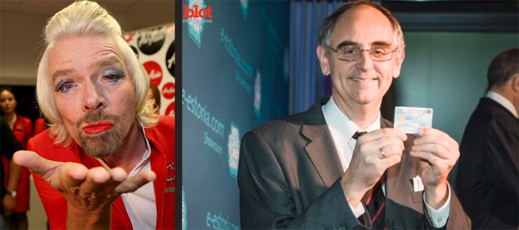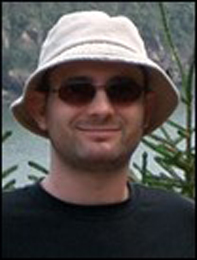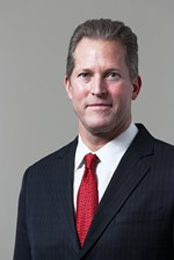
By John Helmer, Moscow
The case for foreign investment in Ukraine is to be made by a specialist in sado-masochism, cosmetic surgery, and undress. Jaanika Merilo (above), 35, a member of the Estonian parliament of Ukrainian origin with US and UK training, was appointed the government advisor on foreign investment in Kiev on January 5. She will report to Aivaras Abromavičius, a Lithuanian and Ukraine’s Minister of Economic Development and Trade since December. In a press campaign this month which Merilo has authorized, she likens herself to the Hollywood actress Angelina Jolie.
In London and Brussels, Merrilo has promoted herself as the executive head of the Ukrainian Venture Capital and Private Equity Association (UVCA), which is backed by Horizon Capital, the US Government-funded operation of Natalie Jaresko, who became the Ukrainian Finance Minister on December 3. The Warsaw Stock Exchange and the European Bank for Reconstruction and Development (EBRD) are backers of Merilo’s association, through which she also claims to be a protégé of Sir Richard Branson (below, left), and a “Facebook friend” of Edward Lucas (right). Lucas is the first e-citizen of Estonia, and is basing his media promotion business there.

Merilo told the Wall Street Journal her group has 32 members; 18 are private equity and venture capital firms. The lawyers to the association are Arzinger of Kiev. This firm, close to Prime Minister Arseny Yatseniuk and President Petro Poroshenko, has provided appointees as deputy attorney-general and deputy minister of justice, in charge of negotiations with Brussels and Washington, as well as a member of President’s Judicial Reform Council.
According to Merilo, her line of business is good for fighting corruption. “It is obvious that the corruption is deep-rooted in the Ukrainian society and it is very hard to uproot it…digital solutions, such as the e-government, where the human contact is minimized, would help to fight against corruption.”
In April of 2014, five weeks after Ukrainian President Victor Yanukovich was ousted in Kiev, Merilo says she became chairman of the management board of the BrainBasket Foundation. The purpose of the foundation was “to change Ukraine,to make I.T. a driving factor in creating a strong economy”. BrainBasket says it was launched on April 15, and confirms Merilo’s appointment. It also reports Merilo as coming from the “Center for Ukrainian European Development”. To advertise her presentation at a subsequent conference in London, Merilo claimed she was managing director of the “Center of Ukrainian European Development and Integration”. No entity with either name can be located.
Supporting the foundation in addition to Branson, BrainBasket claims it’s on the receiving end of “donati[on] funds” from the Ukrainian Government, Microsoft and Cisco, as well as Luxoft, the Russian IT outsourcing operator. In its US share-listing papers in mid-2013, Luxoft reported that its future profitability depends on cheap Ukrainian and Russian labour.
 Working beside Merilo as president of the Brainbasket Foundation is Gil Taran (right). He says he comes from Israel, teaches “information security” at Carnegie-Mellon University in Pennsylvania, and works “with government clients in the financial, operational and defense sectors”. The governments, according to Taran, include Kazakhstan, China, India, Portugal, Mexico, and Colombia.
Working beside Merilo as president of the Brainbasket Foundation is Gil Taran (right). He says he comes from Israel, teaches “information security” at Carnegie-Mellon University in Pennsylvania, and works “with government clients in the financial, operational and defense sectors”. The governments, according to Taran, include Kazakhstan, China, India, Portugal, Mexico, and Colombia.
In May 2014, days after Merilo started at BrainBasket, she was appointed an expert on the Ukrainian Government’s “E-Governance Strategic Advisory Group”. After another month she became a board member of UANGEL, the Ukrainian Business Angels Network. The Angels Network describes itself as the beneficiary of anonymous Ukrainian oligarchs who “rarely mention high return expectations (as we know, angels all over the world target yearly investment return rates of 25-30%) as their main reason. At this stage of market development, they are guided by other things – an opportunity to be engaged with innovation, to keep up with trends, find synergy for their current businesses, obtain a technology, be closer to the creative class of young entrepreneurs and talent pool – but not primarily by the desire to earn more money.”
Merilo’s pitch has been to employ Ukrainians for the IT sector, with a target of producing 100,000 computer operators and programmers by the year 2020, generating a target $20 billion in revenues. According to the BrainBasket website, “Ukraine has an opportunity to use the IT Industry as a locomotive to drive growth and become the IT powerhouse of Europe, or you could call it the BrainBasket of Europe”. The political idea is: “Grow the Middle Class. The vast majority of these revenues will be paid out to the employees, who would then drive growth in Ukraine when spending their income.”
The BBC identifies the scheme as funded by Branson.
 Bernard Casey (right), an American, is another of Merilo’s backers. He became head of the American Chamber of Commerce in Ukraine in January of 2014. By the end of April, Casey was touting an inventory of two hundred state-owned assets in Ukraine which he was putting together for privatization sale to foreign investors. In December Merilo endorsed Casey (no relation to William Casey of the CIA) as “a very strong networker with wide range of contacts from USA to Ukraine, very good specialist and one of the most honorable, pleasant and likable business partners and colleagues anyone could have.”Casey’s previous job was promoting a wind-energy park in Crimea, controlled by Valery Borovik.
Bernard Casey (right), an American, is another of Merilo’s backers. He became head of the American Chamber of Commerce in Ukraine in January of 2014. By the end of April, Casey was touting an inventory of two hundred state-owned assets in Ukraine which he was putting together for privatization sale to foreign investors. In December Merilo endorsed Casey (no relation to William Casey of the CIA) as “a very strong networker with wide range of contacts from USA to Ukraine, very good specialist and one of the most honorable, pleasant and likable business partners and colleagues anyone could have.”Casey’s previous job was promoting a wind-energy park in Crimea, controlled by Valery Borovik.
In August Merilo helped draft the prospectus for the Ukrainian Venture Capital and Private Equity Association (UVCA). This describes its function as a fixer for foreign investors in Ukraine, and lobbyist between them and the government in Kiev. The goals, says the prospectus, are to be the “gateway to Ukraine for foreign private equity investors; promoting Ukrainian investment opportunities to foreign investors in industry eventsand in one-on-one meetings; organizing roadshows for international investors in Ukraine as well as Ukrainian investors abroad; supporting creating IT success stories in Ukraine”; together with “amending legislation on improving business and investment climate; lobbying for creating new investment vehicles and schemes to expand investment opportunities; International support in lobbying…”
Merilo says she feels Ukrainian. “I was born in Estonia, so it’s a little bit twisted and mixed how many percent I’m Ukrainian, Estonian and so on, but actually, I somehow feel it’s [Ukraine] my mission…If you have Ukrainian roots it’s much easier to understand this mentality, and the perceptions. It’s harder for me to say how Estonian perceptions have changed, because I’m half-Ukrainian and not an average Estonian…We didn’t really think about [national identity]. We didn’t categorize ourselves. It was part of our identity, and before you have that choice to make, you don’t really think about it. When the conflict came you had to pick ‘sides’, and then there was more of a variation. I’m very much Ukrainian at the moment, I just live in Estonia. I think everyone’s got to make their own decisions.”
With an Estonian business degree and additional study at Cornell University in the US and the University of Cumbria in the UK, Merilo got her big business break with Estonian, Urmas Sõõrumaa (below, left). She describes him as her “guru”.
A car mechanic by trade, Sõõrumaa served in the Soviet armed forces during the conscription era, and then, between 1983 and 1991, he rose through the ranks of the Soviet-controlled Interior Ministry of Estonia. According to Merilo, he wasn’t a policeman. According to him, he was an inspector of militia. Whether he inspected cars or criminals isn’t clear. After Estonia became independent, Sõõrumaa started selling protection, er security services to building and real estate developers. He then moved upstream into real estate investment and investment management.
In 2008 Sõõrumaa was telling the local press that Estonia wasn’t good for his business. By 2013 he had remedied that, selling out to the UK security group G4S, and consolidating his remaining protection operations in USS Security Esti AS. According to Sõõrumaa, USS Security owns “a third of Estonia’s security service’s market”, with a private army of at least 1,300. Sõõrumaa has also branched out into the “manned and technical security services” sector in Ukraine. Garbage collection, landfill, biogas, and tennis are other lines of his business.
Merilo says she worked for Sõõrumaa for several years.

Sõõrumaa is also an adept of James Bond – the flicks, that is. That’s Sõõrumaa (above right) practising his moves at a party for the Estonian premiere for “Skyfall”, which Sõõrumaa’s USS Security company paid for at Sõõrumaa’s US Art Gallery in Tallinn in November 2012. The lady being throttled is Kati Toots (née Kõiv), whom the local media describe as a “socialite” and having, like Merilo, a guru in a branch of the Estonian police and intelligence services.
Merilo’s new guru, Ukrainian economic development and trade minister Abromavičius, has been associated in the past with Lithuanian government-funded efforts to swing western Ukraine toward the European Union – for example, the Centre for European Integration of Ukraine. The Lithuanian Government reports funding several entities like this.
Just after her Kiev appointment was announced, Merilo told the Estonian media “Ukraine needs reforms within weeks… although the hostilities in the eastern Ukraine have not stopped and are a depressive topic, it wouldn’t obstruct the reforms.”
The war in the east of the country looked to be good for Merilo’s line of business, even before she was given her job in Kiev. On December 30, she told Estonia Public Broadcasting: “The key principle of introducing e-government to Ukraine is to ‘pick the functionality that fits the need today.’ The example she cites is the 27 military hospitals currently using differing IT systems, into which the e-health infrastructure used successfully in North Estonia Military Hospital is being introduced. ‘Now we’re copying the main functionality, giving it to Ukraine, and Ukrainians are plugging in certain databases, and whatever is needed. I’ve always said that local government should support the development of local IT products and local services, but today we don’t have this time. Anything that could be adopted and copied cheaply, quickly and efficiently is very good. We’re taking the Estonian software and adapting it for Ukraine.’ Ukraine’s Ministry of Internal Affairs, she adds, wish to utilize similar e-government IT systems for use with the country’s National Guard.”
She added that Estonia “is offering practical assistance by using its technical knowhow to bring help to those on the frontline of the fighting.”
 In a photograph with Abromavičius (right), published on January 17, Merilo has opted for office coveralls and blackened hair. The official on her left is the Prime Minister of Estonia, Taavi Roivas. It’s her maiden appearance as a Ukrainian official: Merilo is missing from the photo record of a meeting Abromavičius held last week with Nathan Sheets, the US Treasury Undersecretary for International Affairs. Sheets told Abromavičius that “provided Ukraine remains on-track with the reform program it has agreed with the International Monetary Fund (IMF)”, the US will sign a $1 billion loan guarantee. Also, “if Ukraine continues making concrete progress on its reform agenda and if conditions warrant,” Sheets added: “the U.S. Administration will be willing, working with Congress, to provide an additional $1 billion loan guarantee in late 2015.”
In a photograph with Abromavičius (right), published on January 17, Merilo has opted for office coveralls and blackened hair. The official on her left is the Prime Minister of Estonia, Taavi Roivas. It’s her maiden appearance as a Ukrainian official: Merilo is missing from the photo record of a meeting Abromavičius held last week with Nathan Sheets, the US Treasury Undersecretary for International Affairs. Sheets told Abromavičius that “provided Ukraine remains on-track with the reform program it has agreed with the International Monetary Fund (IMF)”, the US will sign a $1 billion loan guarantee. Also, “if Ukraine continues making concrete progress on its reform agenda and if conditions warrant,” Sheets added: “the U.S. Administration will be willing, working with Congress, to provide an additional $1 billion loan guarantee in late 2015.”
Two days after Sheets, Merilo was also excluded from the record of Abromavičius’s meeting with Peter Balazs from the European Commission. Balazs, according to the Ukrainian record, told Abromavičius the EU isn’t so keen on the privatization selloff which Merilo and Casey have been promoting.
Merilo was asked to clarify the date and purpose of the photographs which she has released on the internet, displaying her in undress, her lips, a knife at her lips, and tasting blood; they were published last week by a website called Peoples Trust Toronto. Merilo did not reply. Asked whether funding for the Ukrainian Venture Capital and Private Equity Association has come from government bodies such as the Ukrainian Government, the European Union, EBRD, or the US Agency for International Development, she refused to say.











Leave a Reply